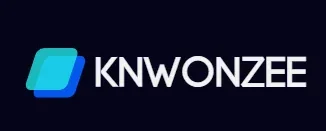The Future of Finance: Decentralized Finance (DeFi) Explained

In recent years, the world of finance has witnessed a revolutionary transformation, ushered in by the advent of blockchain technology. One of the most significant developments to emerge from this technological revolution is Decentralized Finance, often abbreviated as DeFi. DeFi represents a paradigm shift in the way financial services are structured and accessed. With its promise of increased transparency, accessibility, and autonomy, DeFi has garnered significant attention from both industry experts and enthusiasts alike. This article aims to delve into the intricacies of DeFi, exploring its principles, applications, challenges, and the potential it holds for shaping the future of finance.
Understanding Decentralized Finance
At its core, DeFi refers to a blockchain-based financial ecosystem that seeks to decentralize traditional financial services. Unlike traditional finance, which relies on intermediaries such as banks, brokers, and clearinghouses, DeFi operates on decentralized networks, primarily leveraging smart contracts on blockchain platforms like Ethereum. These smart contracts execute predefined rules without the need for intermediaries, enabling the creation of various financial instruments and services in a trustless and permissionless manner.
Key Components of DeFi
- Smart Contracts: The Foundation of DeFiSmart contracts play a pivotal role in the functioning of DeFi applications. These self-executing contracts are programmed to automatically facilitate, verify, or enforce the negotiation or performance of a contract, without the need for intermediaries. In the context of DeFi, smart contracts enable the creation of various financial products and services, including lending, borrowing, trading, and decentralized exchanges (DEXs).
- Decentralized Exchanges (DEXs): Redefining TradingDEXs serve as decentralized platforms for the exchange of digital assets, allowing users to trade cryptocurrencies and tokens directly with one another without the need for intermediaries. By leveraging smart contracts, DEXs enable peer-to-peer trading while ensuring the security and transparency of transactions. Popular DEXs include Uniswap, SushiSwap, and PancakeSwap.
- Lending and Borrowing Protocols: Empowering Financial InclusionDeFi lending and borrowing protocols facilitate the borrowing and lending of digital assets in a decentralized manner. Users can either lend their idle assets to earn interest or borrow assets by collateralizing their existing holdings. These protocols utilize smart contracts to automate loan issuance, collateral management, and interest payments, thereby democratizing access to financial services.
Applications of DeFi
- Decentralized Finance: Beyond BordersDeFi has the potential to revolutionize traditional finance by eliminating geographical barriers and reducing reliance on centralized institutions. Through DeFi platforms, individuals across the globe can access financial services such as savings, lending, and trading without the need for traditional banking infrastructure. This democratization of finance holds particular significance for unbanked and underbanked populations.
- Tokenization of Assets: Unlocking LiquidityDeFi enables the tokenization of real-world assets, including securities, real estate, and commodities, by representing them as digital tokens on blockchain networks. This process unlocks liquidity by fractionalizing ownership and allowing assets to be traded seamlessly on decentralized exchanges. Tokenization democratizes access to investment opportunities traditionally reserved for accredited investors, fostering greater inclusivity in financial markets.
- Decentralized Autonomous Organizations (DAOs): Community GovernanceDAOs are organizations governed by smart contracts and operated by stakeholders without centralized control. In the realm of DeFi, DAOs play a crucial role in governing decentralized protocols and platforms, enabling community-driven decision-making processes. DAOs distribute voting rights and governance tokens to participants, allowing them to collectively shape the direction and development of DeFi projects.
Challenges and Considerations
- Security and Smart Contract RisksWhile DeFi offers numerous benefits, it also introduces inherent risks, particularly concerning security vulnerabilities and smart contract exploits. Due to the immutable nature of blockchain transactions, any vulnerabilities in smart contracts can result in significant financial losses. As such, robust security measures and rigorous auditing processes are imperative to mitigate these risks.
- Regulatory UncertaintyThe decentralized nature of DeFi presents regulatory challenges for policymakers worldwide. The lack of centralized intermediaries complicates regulatory oversight and enforcement, raising concerns about investor protection, financial stability, and compliance with anti-money laundering (AML) and know-your-customer (KYC) regulations. Regulatory clarity is essential to foster the responsible growth of DeFi while addressing potential risks.
- Scalability and InteroperabilityScalability remains a pressing issue within the DeFi ecosystem, as blockchain networks such as Ethereum face limitations in transaction throughput and processing speed. Additionally, achieving interoperability between different DeFi protocols and blockchain networks is crucial for fostering seamless asset transfers and cross-platform functionality. Solutions such as layer 2 scaling solutions and blockchain interoperability protocols are actively being developed to address these challenges.
The Future of Finance: Embracing Innovation
As DeFi continues to evolve and mature, its impact on the future of finance is poised to be transformative. By leveraging blockchain technology and decentralized principles, DeFi has the potential to democratize access to financial services, promote financial inclusion, and reshape traditional economic paradigms. However, realizing this vision requires collaboration between industry stakeholders, regulators, and technology innovators to address challenges, foster innovation, and build a more accessible and resilient financial ecosystem. In embracing the principles of decentralization and innovation, the future of finance holds promise for a more inclusive and equitable global economy.
Conclusion
Decentralized Finance (DeFi) represents a groundbreaking advancement in the realm of finance, offering a decentralized alternative to traditional financial services. By harnessing the power of blockchain technology and smart contracts, DeFi platforms enable the creation of diverse financial products and services, fostering greater accessibility, transparency, and autonomy. Despite facing challenges such as security risks, regulatory uncertainty, and scalability concerns, DeFi continues to gain traction as a catalyst for financial innovation and inclusion. As the DeFi ecosystem continues to evolve, its transformative potential in shaping the future of finance remains unparalleled. For more updates and exclusive content, visit Cryptonewzhub.com Internet.
.






